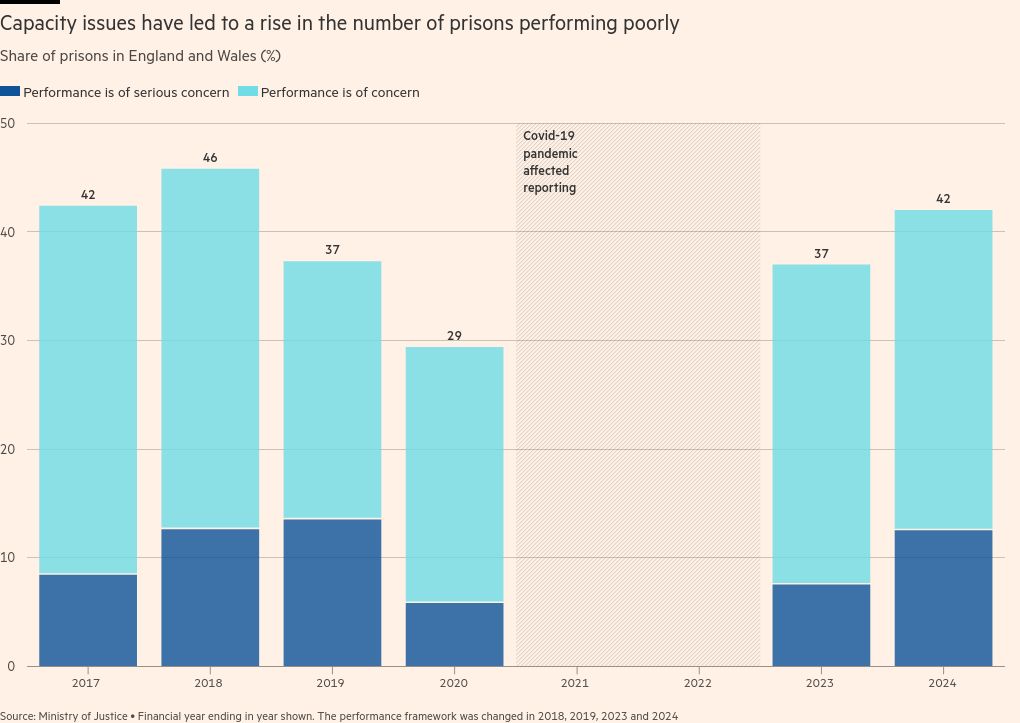
Unlock the Editor’s Digest for free
Roula Khalaf, Editor of the FT, selects her favourite stories in this weekly newsletter.
The number of poorly rated prisons in England and Wales has risen sharply over the past year, according to official data, highlighting the mounting crisis that is unfolding across the sector.
In the 12 months to March 2024, 15 of the total 119 prisons were rated a “serious concern” — the lowest grade — up from nine the previous year, according to statistics published by the Ministry of Justice on Thursday.
The data follows warnings from prison governors that facilities are at “breaking point” because of a sustained lack of investment, staff recruitment and retention issues and overcrowding, with the system operating at 99 per cent capacity since the start of 2023.
The Prison Governors’ Association, the sector trade body, has said the criminal justice system had been taken to “the brink of failure” by the previous Conservative administration.
“It is no surprise that there has been a decline in the performance of prisons, the system as a whole has been running hot for at least two years and some parts have never recovered from austerity,” said Carl Davies, PGA vice-president.

According to the MoJ figures, 42 per cent of prisons were rated of “concern” or “serious concern” in the year ending March 2024, up from 37 per cent the previous year. The assessment was based on set criteria including safety, security, respect and purposeful activity.
This is the highest share of poorly rated prisons since 2017-18. However, the way that prison performance is measured has changed repeatedly during this period, including with the introduction of a new framework last year.
“Violence and self-harm in prison have risen to unacceptable levels as capacity pressures pushed prisons to the point of collapse,” the release from the Ministry of Justice noted.
The number of prison assaults increased 30 per cent to 28,292 in the year to March 2024, while self-harm rates hit a peak since records began in 2004, with the equivalent of one prisoner hurting themselves every seven minutes.
Responding to the data, Shabana Mahmood KC, justice secretary, said it signalled that the “crisis” in prisons had led to “endemic violence and harm”.
“These statistics reveal what is really happening inside jails today, and why we had no choice but to act,” she added.
The new Labour government has taken action to address the prisons crisis by reducing the automatic release point for some non-violent offenders from 50 to 40 per cent of their sentence served. From September this should lead to the early release of several thousand inmates.
The Conservative party said it had delivered 13,000 new prison places while in office and always prioritised public safety.
It added: “We have always been clear that prisoner release should only be as an absolute last resort, and that government should exhaust all other options before committing to this course of action — and should ensure adequate safeguards are in place to protect the public.”